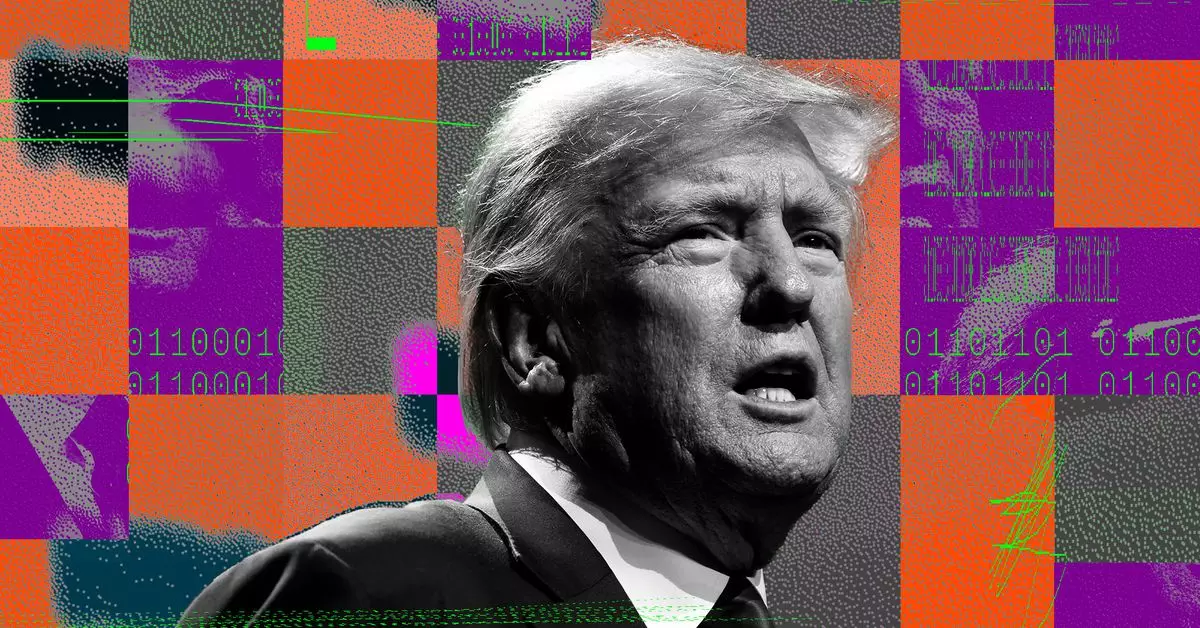The intersection of politics and technology often brings about heated debates, and the ongoing situation regarding TikTok is no exception. With President-elect Donald Trump seeking to influence the Supreme Court’s decisions regarding the popular video-sharing app, the complexities of national security, free speech, and corporate ownership have surfaced in a manner that demands scrutiny and analysis.
In a significant turn of events, President-elect Trump has filed an amicus brief urging the Supreme Court to allow him to broker a deal aimed at saving TikTok from a looming ban in the United States. The brief, which reveals Trump’s intentions to resolve the contentious issues surrounding the app through political channels, comes at a time when the Supreme Court has agreed to deliberate on whether a congressional bill to ban TikTok violates the First Amendment. This bill was enacted under the premise that TikTok poses national security risks due to its ownership by Chinese company ByteDance.
The urgency of the situation is underscored by a deadline set for January 19th. This date is particularly crucial as it falls just one day before Trump’s anticipated inauguration. In his filing, Trump argues that his proposed negotiations could eliminate the necessity for the Court to engage in a complex First Amendment debate regarding TikTok’s future. Notably, Trump’s position comes amid growing concerns about social media’s role in public discourse and the fear that government regulation could infringe on free speech rights.
Though Trump’s brief stalwartly defends his approach and highlights his unique qualifications as a negotiator, it lacks concrete details about what any potential resolution would entail. One can speculate that the solution would likely require ByteDance to divest a significant portion of its stake in TikTok to an American entity. This scenario rekindles the debate surrounding foreign influence in domestic technology platforms and raises questions about the efficacy of such measures in ensuring user data safety and national security.
Curiously, Trump focuses on his digital presence and a formidable social media following to emphasize his understanding of TikTok’s importance as a platform for political expression. His advocacy for the app subtly contrasts with the hardline stance he adopted during his presidency when he vigorously sought to enforce a ban on TikTok.
Despite Trump’s current advocacy to maintain TikTok’s viability in the U.S. market, there remains significant political tension surrounding the app. A coalition of prominent legislators, including established figures like Mitch McConnell and Ro Khanna alongside 22 states and former FCC Chairman Ajit Pai, are united against the platform, seeking to expedite its ban. This collective push reflects an important aspect of American politics: the chasm between public sentiment, tech governance, and national security directives.
The political landscape regarding TikTok isn’t merely about the binary choices of banning or maintaining; it reflects broader societal concerns tied to censorship, misinformation, and global tech competition. Citing instances like Brazil’s temporary ban of Elon Musk’s social media platform X, Trump attempts to frame the narrative around risks associated with government censorship while advocating for a more measured approach.
Trump’s altered rhetoric concerning TikTok illustrates a profound shift in the relationship between political campaigns and social media. The former president previously viewed platforms like TikTok through a security lens, but as its utility became evident during his campaign for the 2024 election, a change in strategy emerged. This shift is emblematic of a larger trend where digital presence has transformed how politicians engage with voters and communicate messages, reflecting the undeniable significance of social media in contemporary political landscapes.
The legal and political tussle over TikTok serves as a crucial case study on the interplay between technology, governance, and public expression. As the Supreme Court prepares to deliberate this critical issue, the implications extend far beyond one app; they encompass frontline discussions about national security, corporate governance, and the future of free speech in the digital age. The outcome may redefine not only TikTok’s standing in the U.S. but also how political figures negotiate and navigate the rapidly evolving digital landscape.


Leave a Reply